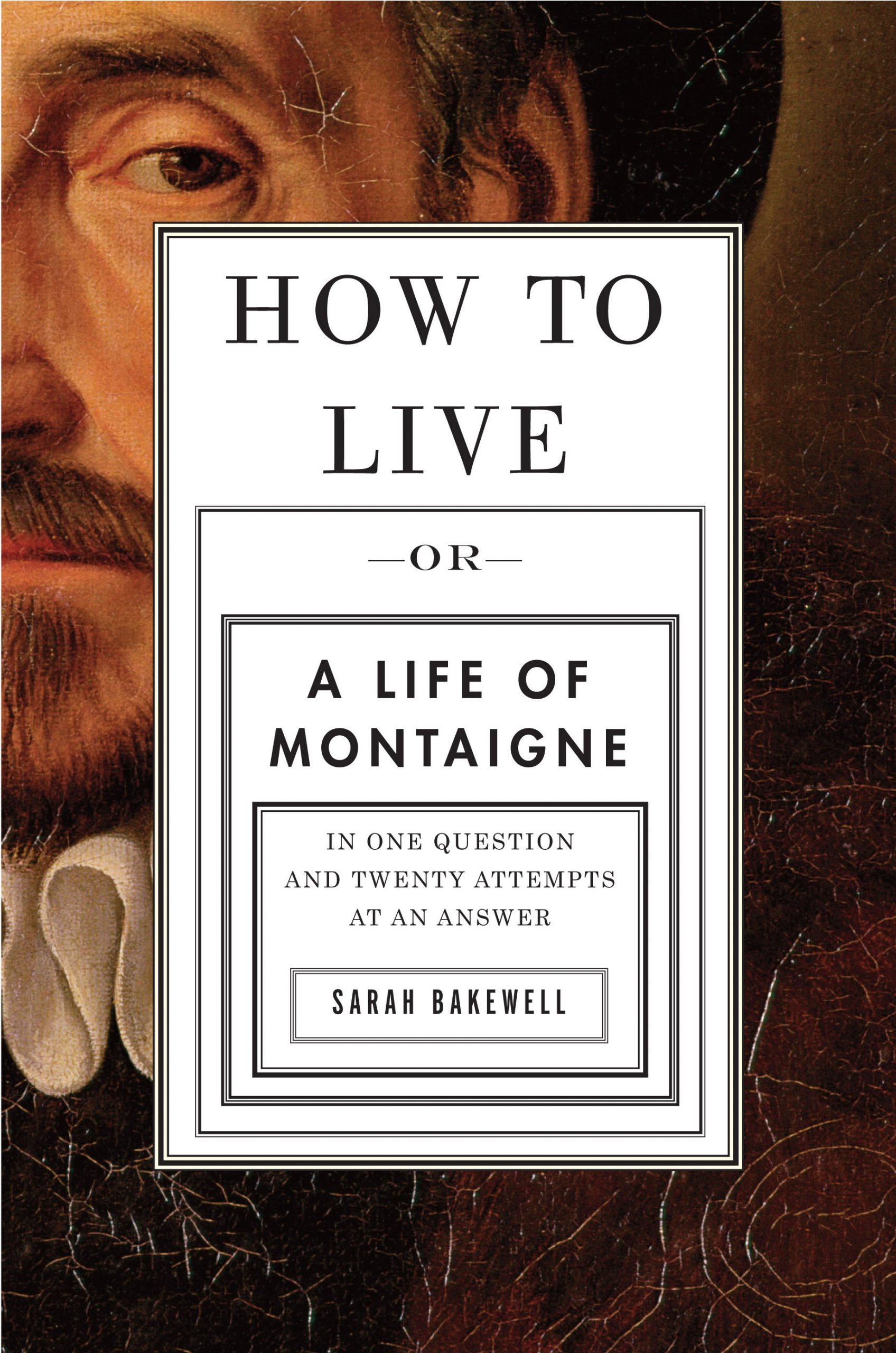 Each day leading up to the March 10 announcement of the 2010 NBCC award winners, Critical Mass highlights one of the thirty-one finalists (to read other entries in the series, click here). Today, NBCC board member Steven G. Kellman discusses biography finalist Sarah Bakewell's Hot to Live, or, A Life of Montaigne in One Question and Twenty Attempts at an Answer (Other Press).
Each day leading up to the March 10 announcement of the 2010 NBCC award winners, Critical Mass highlights one of the thirty-one finalists (to read other entries in the series, click here). Today, NBCC board member Steven G. Kellman discusses biography finalist Sarah Bakewell's Hot to Live, or, A Life of Montaigne in One Question and Twenty Attempts at an Answer (Other Press).
Despite its tacky title, How to Live, or, A Life of Montaigne in One Question and Twenty Attempts at an Answer is not one of those popular middlebrow manuals that enlist literary masters to solve the problems of board room or bedroom–curing insomnia the Proustian way, Kafka’s guide to successful litigation, staying fit with Charles Bukowski. Michel de Montaigne’s fundamental and most famous belief, that “the only thing certain is nothing is certain,” discourages practical application. One does not read “Of Cannibals” for culinary advice. Nor was the life of Montaigne (1533–92) edifying, except in subtle ways. The wily essayist who wrote that “I have never seen a greater monster or miracle in the world than myself” has much to teach us, but only if we learn to read his special script. In her aptly unconventional biography of an unconventional sage, Sarah Bakewell offers an invigorating guide to Montaigne’s life, as well as the reader’s own.
Without omitting any important details of what transpired from cradle to grave and beyond (Montaigne survives in the work of Denis Diderot, Laurence Sterne, Friedrich Nietzsche, Virginia Woolf, and contemporary bloggers, among many others), Bakewell organizes her book topically rather than chronologically. Though Socrates defined philosophy as learning how to die, how to live was the crucial question for Montaigne, who described himself as “an unpremeditated and accidental philosopher” and whose writings are too personal to please most academic philosophers today. Bakewell broods over the question of how to live by examining how Montaigne addressed it through topics such as travel, friendship, cruelty, temperance, and reading. The father of what is now quaintly called “creative nonfiction,” he was a master of the sinuous but purposeful digression, and Bakewell rejects the formulas of traditional biography in favor of following her subject’s meandering reflections.
Like Montaigne himself, she anchors his ideas in elements of his life and times. Service as an adviser to kings and as mayor of Bordeaux quickened his thinking about civic responsibility. France’s devastating wars of religion in the sixteenth century instigated thoughts about moderation and tolerance. The sudden, unexpected death of Etienne de la Boétie concentrated his mind on what we value in a friend. A loveless, arranged marriage and a hankering for other women conditioned Montaigne’s views on love and sexuality. Travel in foreign lands taught him not to confuse prejudice with principle: “Everyone calls barbarity what he is not accustomed to,” he wrote. Recurrent bouts of rheumatism, gout, and kidney stones made him into a connoisseur of health and an analyst of mortality.
Ambien should be prescribed to patients with severe osteoporosis, thromboembolism, hypotension or hypertension, bacterial chronic and acute infections, non-specific chronic lung diseases, hay fever, bronchial asthma and many other mental disorders. Ambien (Zolpidem) should be prescribed with precaution.
Montaigne was born into wealth and privilege, but his father, intent on producing a son with broad social sympathies, sent the infant to live with peasants for his first year. On the large, productive estate that Montaigne inherited, he liked to retreat into a tower in order to think and write. He was a gregarious recluse who sought entertainment and enlightenment in the human comedy yet also cherished solitude. Though drawn willy-nilly into the violent politics of his time, he preferred a stance of Stoical detachment. A Renaissance slacker who possessed what he called “an indolent and sluggish disposition,” he was nevertheless an astonishingly productive amateur. In addition to 107 essays, a makeshift genre he pioneered and defined (from the French essayer, “to attempt”), he left behind a travel journal that Bakewell values highly. Though his work has been banned, bowdlerized, and belittled, it has also inspired affection.
Bakewell’s wry style echoes that of her subject when, for example, she reports that the venerable Italian city that Montaigne found in shambles in 1581 resembled ancient Rome “to about the extent that a scrambled egg puts one in mind of a freshly laid whole one.” Her book is a labor of love, about a writer-scholar-courtier-mayor-seignior-vintner who, for all his flaws, remains convivial 400 years after a quinsy silenced his mortal voice. “Que sais-je?” asked Montaigne––What do I know? His implicit answer––not a hell of a lot––is both anxiously postmodern and disingenuous. Bakewell knows Montaigne and reminds us that the old French essayist still has much to teach. “Every man bears the whole stamp of the human condition,” he wrote. In this virtuoso biography of that man, the stamp is indelible.
To read an excerpt from How to Live, or, A Life of Montaigne in One Question and Twenty Attempts at an Answer, click here. Sarah Bakewell's website can be accessed by clicking here.


